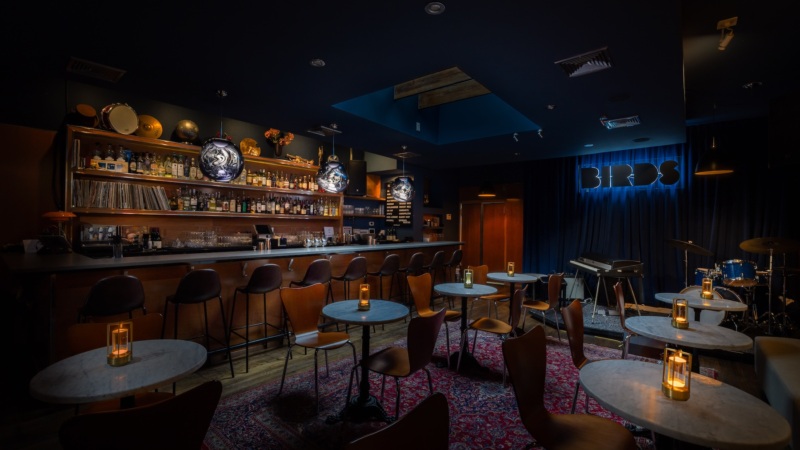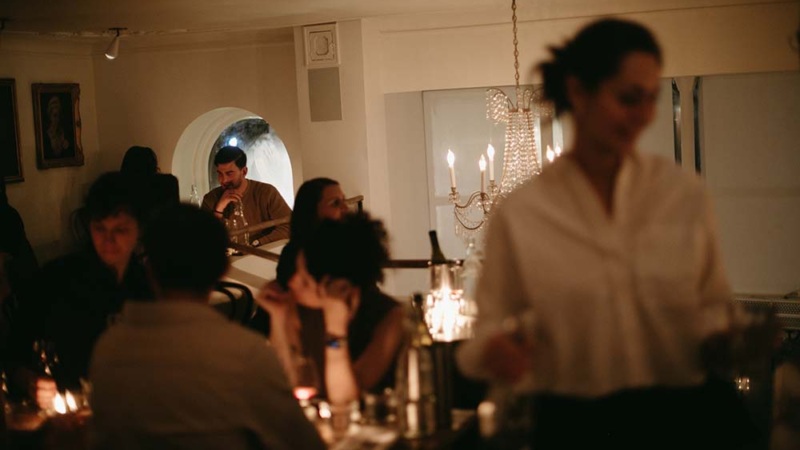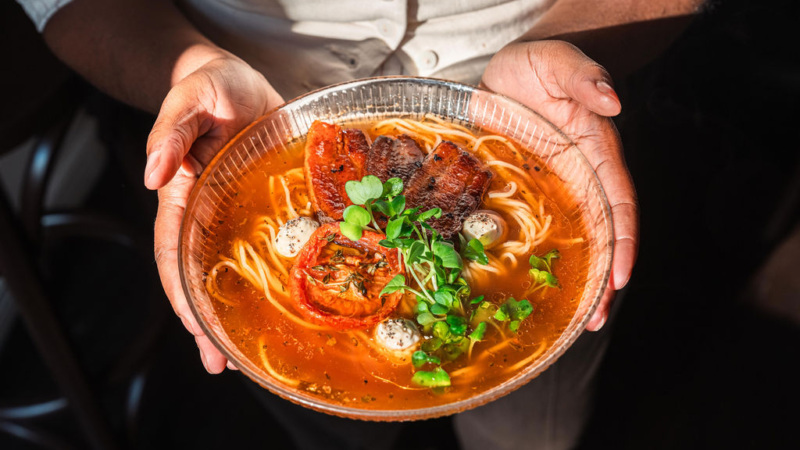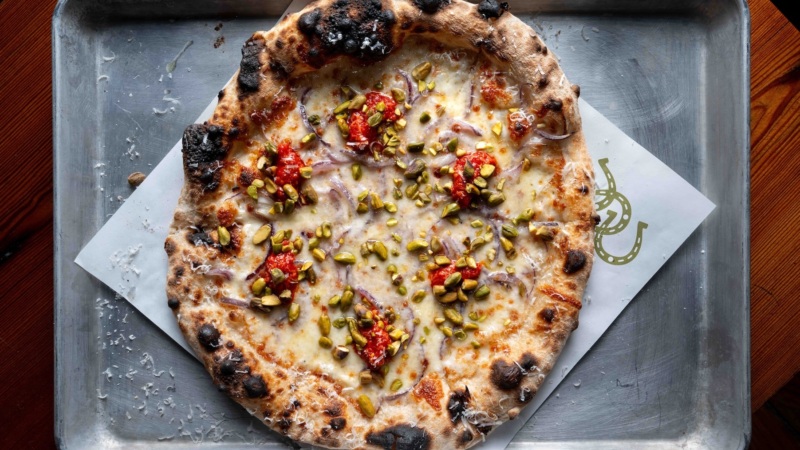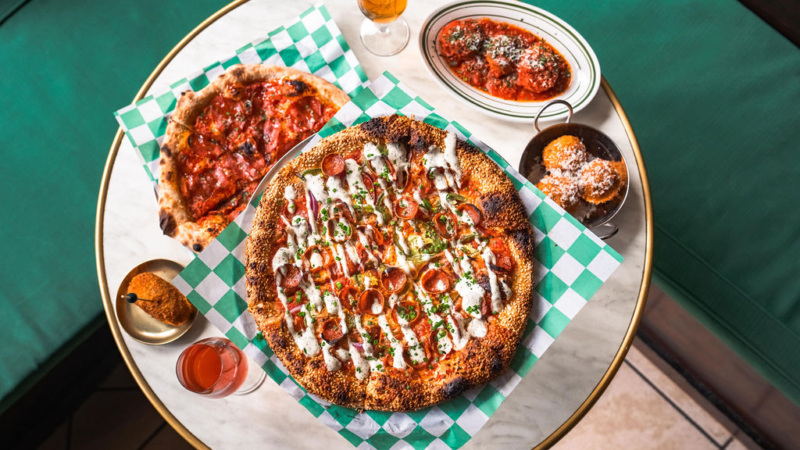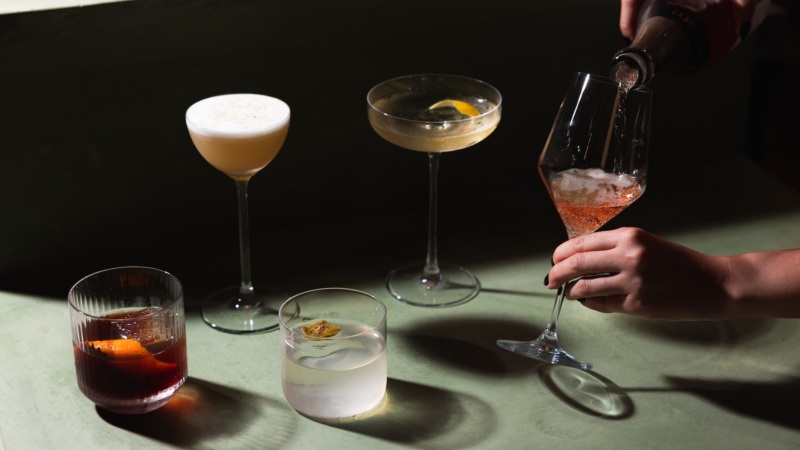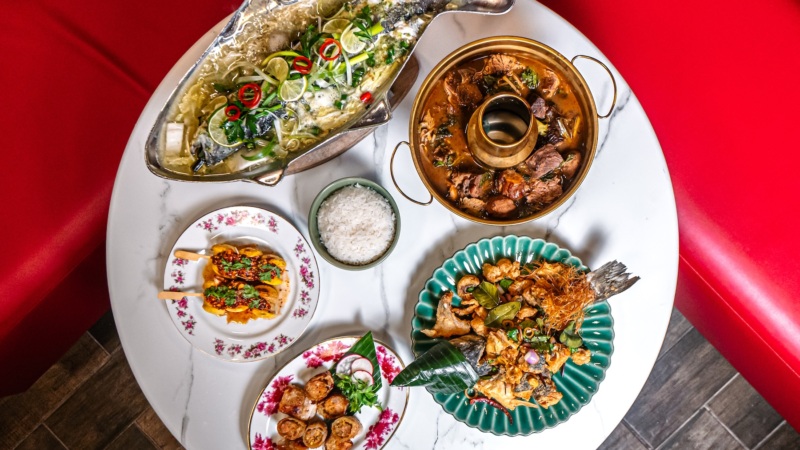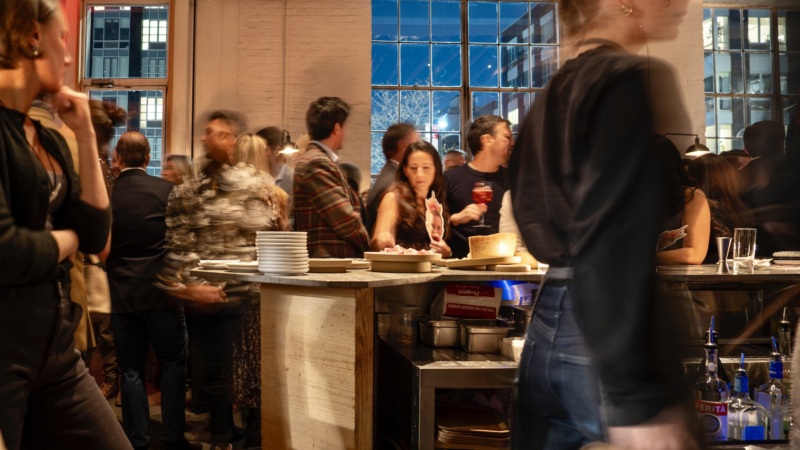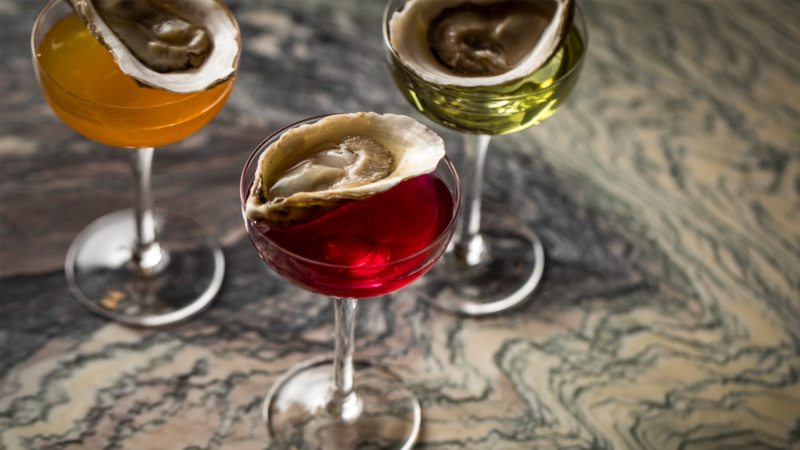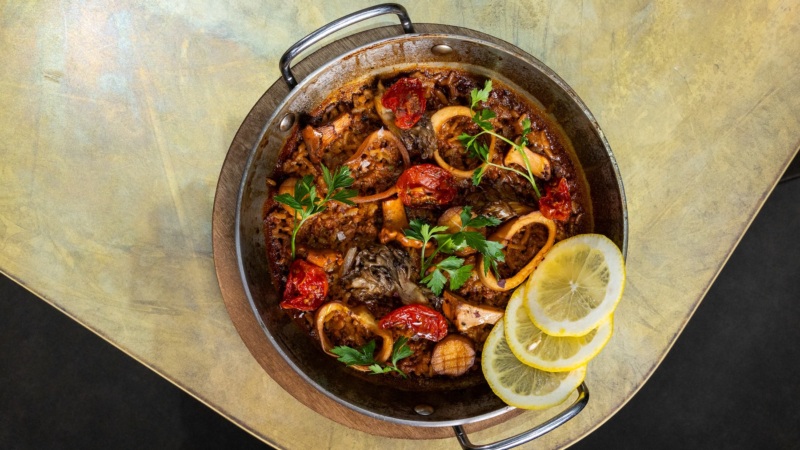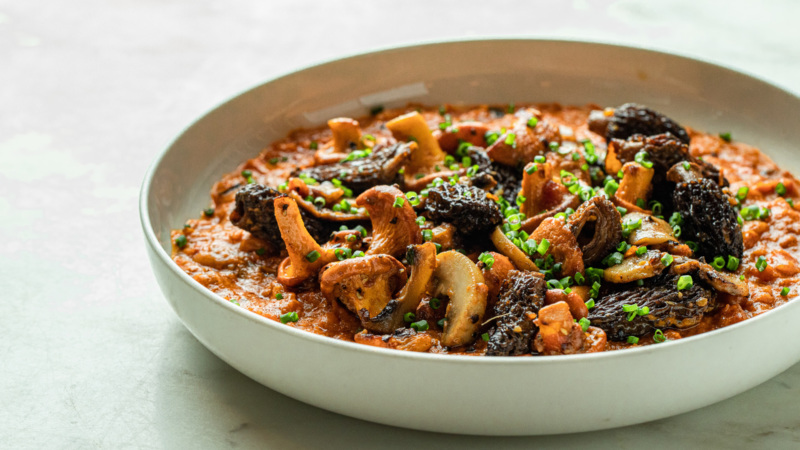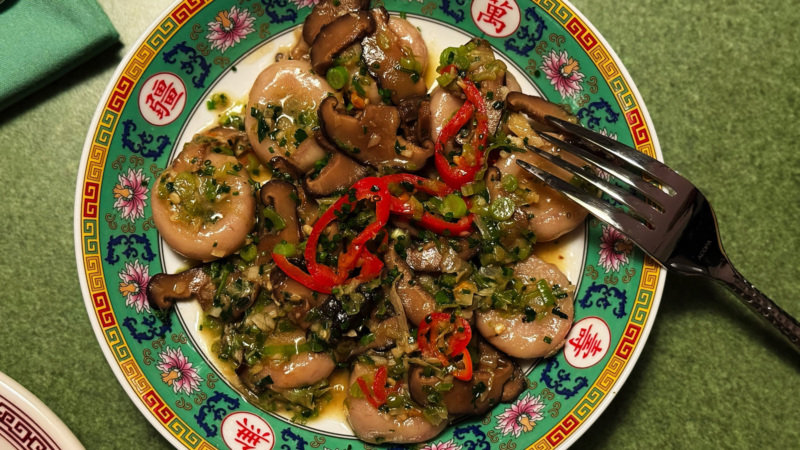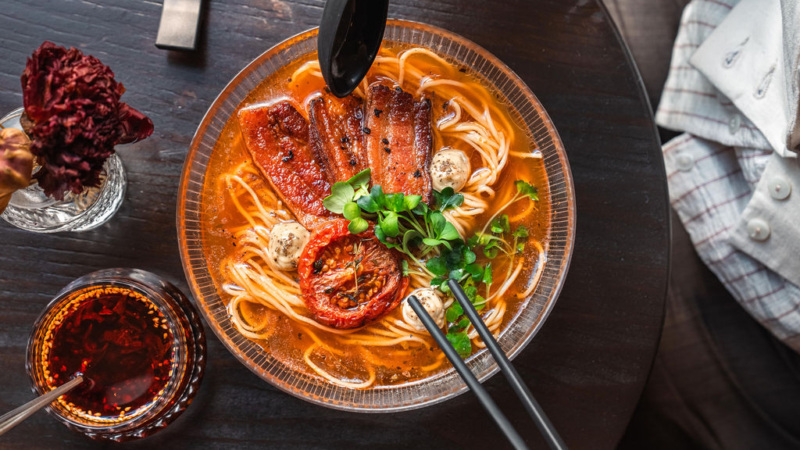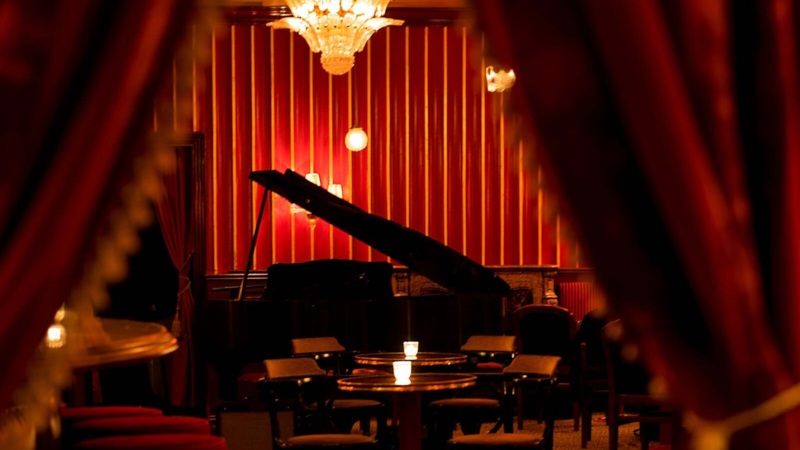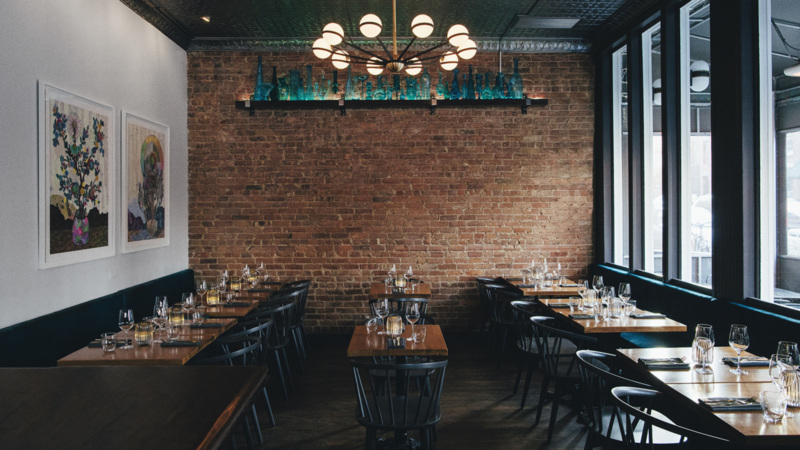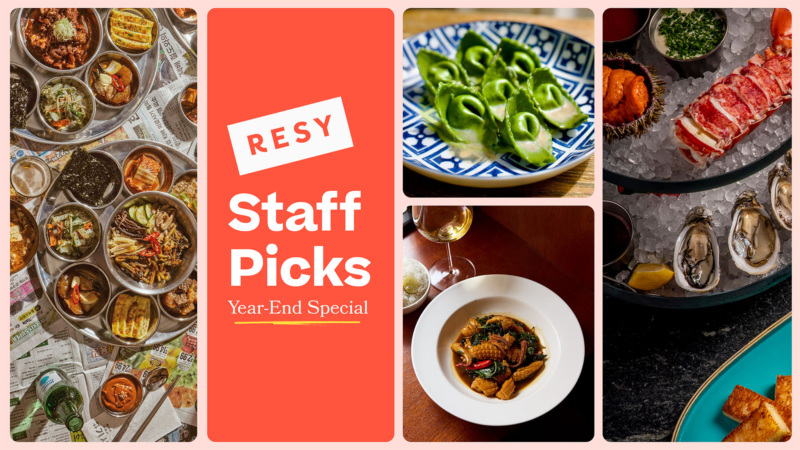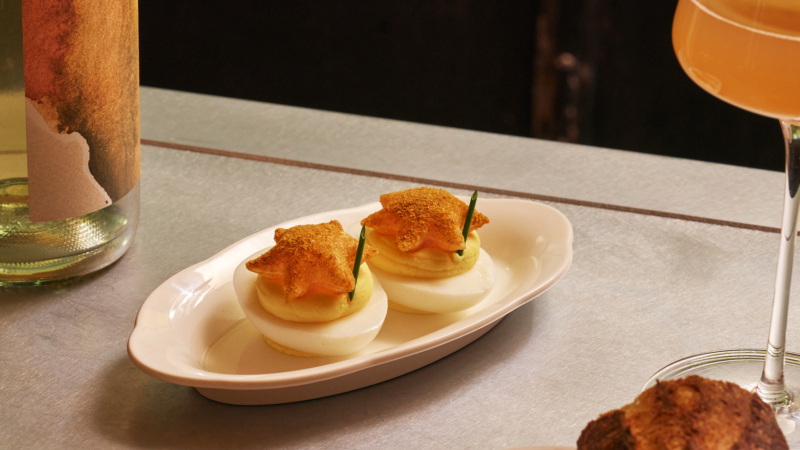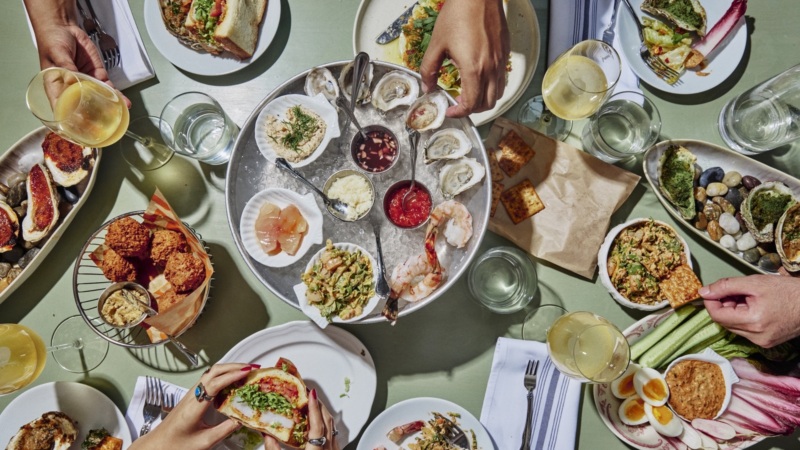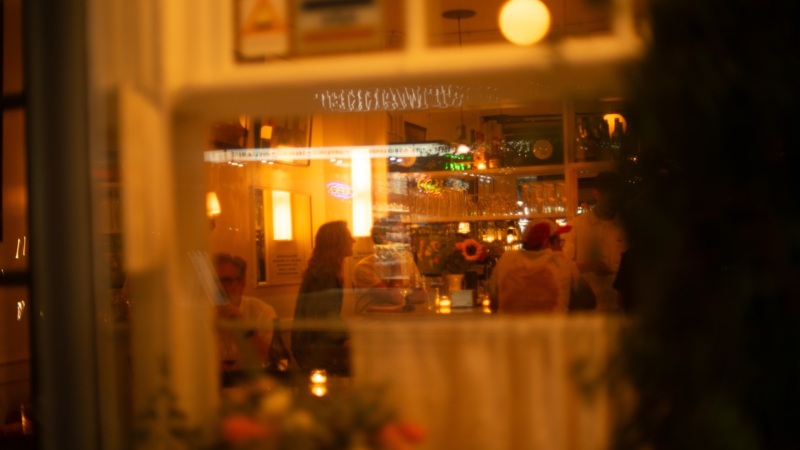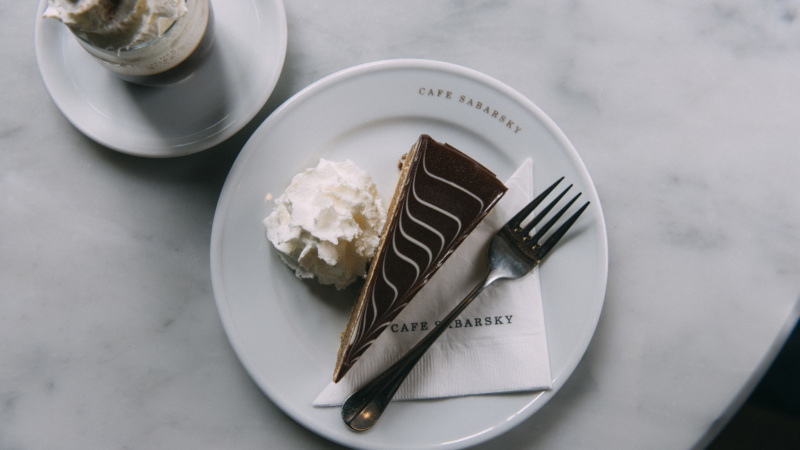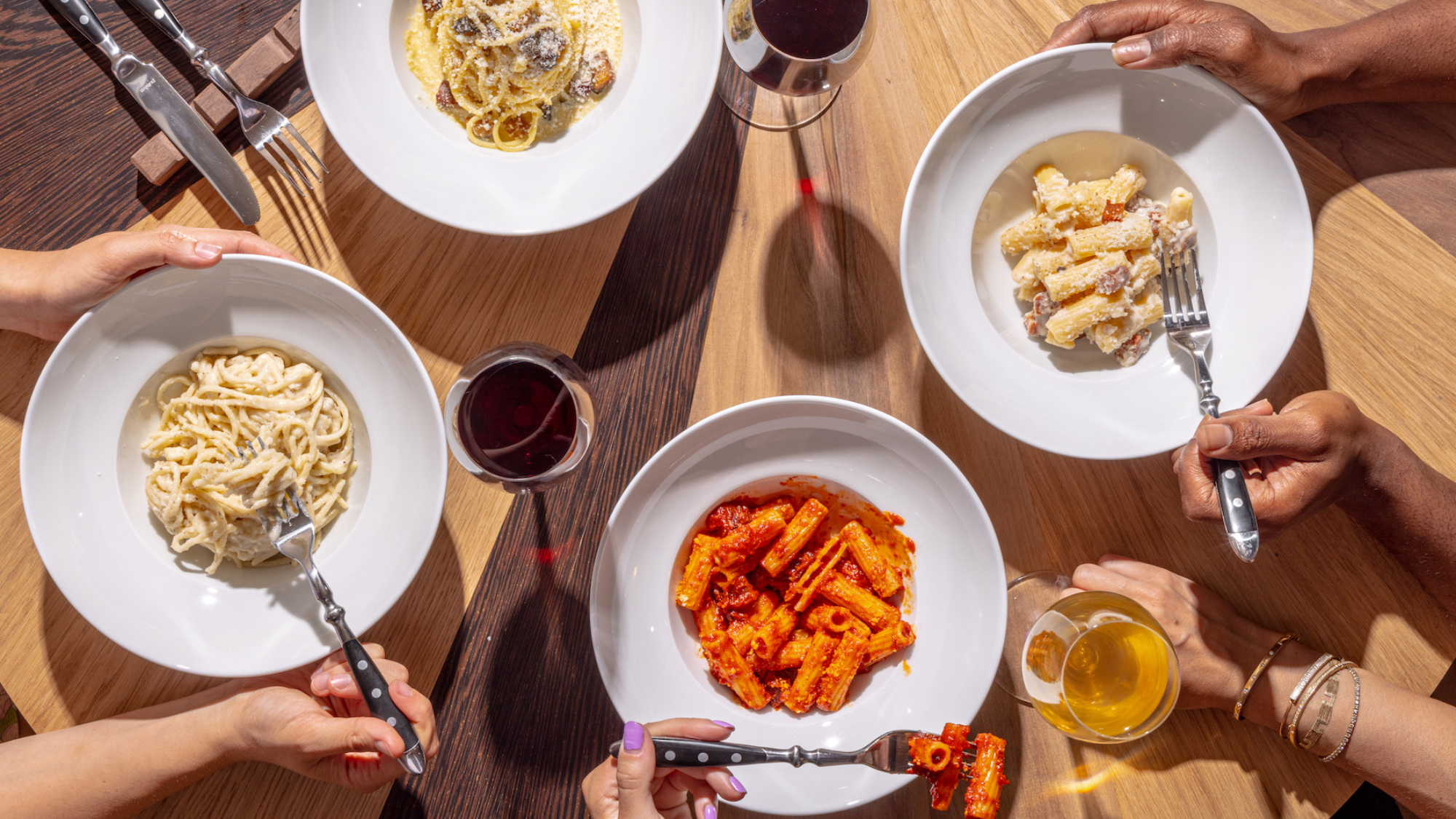
Say Ciao to Roscioli NYC, Direct From Rome
Published:
New York’s newest import is none other than a Roman icon: Roscioli NYC. Clustered around Rome’s historic Campo di Fiore, the ingredient-centric spots of the legendary Roscioli dynasty have long hooked both locals and visitors on rare prosciuttos and grotto-aged cheeses — and forever ennobled spaghetti alla carbonara with artisanal guanciale, Sarawak pepper, and designer eggs from hens fed with goat milk.
Now, in their first outpost outside of Italy, the Roscioli family, along with Rimessa Roscioli partner Alessandro Pepe, are partnering with dynamic New York restaurateur Ariel Arce (Air’s Champagne Parlor, Tokyo Record Bar) to open Roscioli NYC in the same historic brick building on MacDougal Street that was once home to Arce’s experimental wine and dinner party destination, Niche Niche.
Here’s everything you should know before you go.
More from Resy
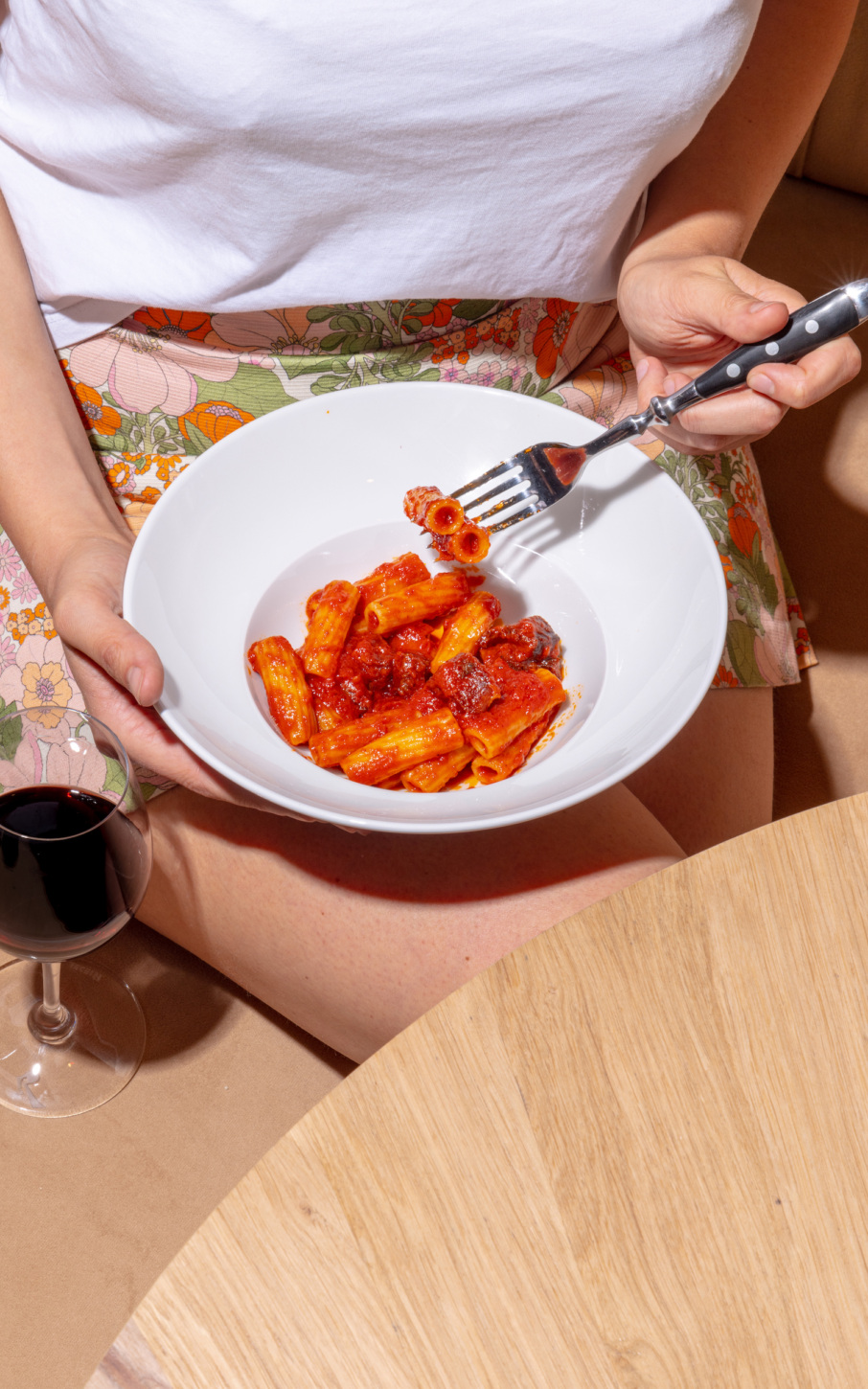
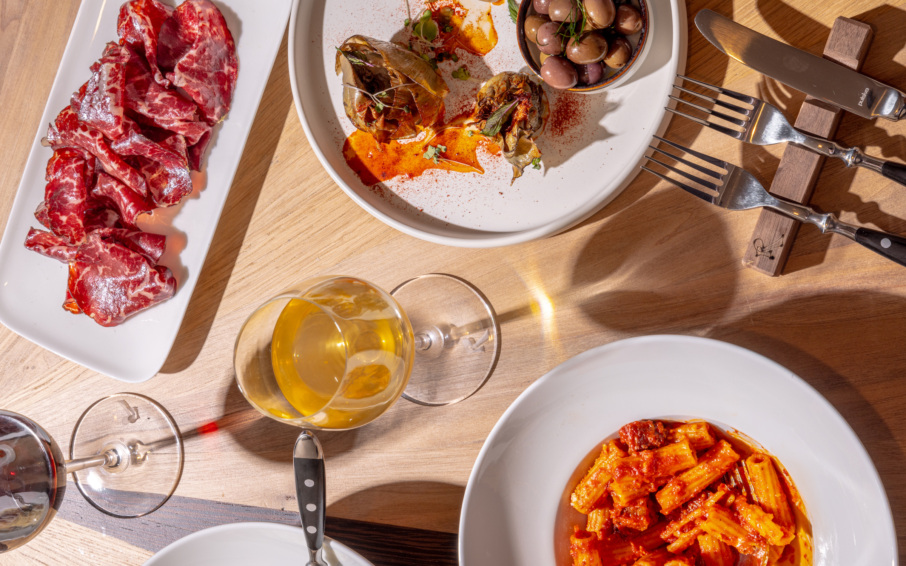
1. First things first, a primer on Roscioli in Italy …
The Roscioli family empire began in 1972 with Antico Forno Roscioli, which was housed in a 19th-century bakery building that became celebrated for its fig-studded bread and its supremely chewy pizza al taglio. Two decades later, the iconic establishment was followed by Salumeria Roscioli around the corner; and by 2004, what started out as a delicatessen dedicated to Italy and Europe’s most sought-after comestibles grew into a destination restaurant as the family gradually added tables and chairs to their Ali Baba’s cave of delicacies.
Today, the Roscioli Salumeria features a rotating roster of 300 cheeses and some 200 cured meats, its shelves crammed with jars and bottles of rare honeys, hand-crafted preserves, and profoundly aged vinegars, plus a cellar boasting more than 2,500 bottles. Roscioli Caffè Pasticceria came next, while 2017 brought Rimessa Roscioli, a multi-experience wine bar and restaurant featuring nightly food and wine tastings that was featured in the Rome episode of “No Reservations.”
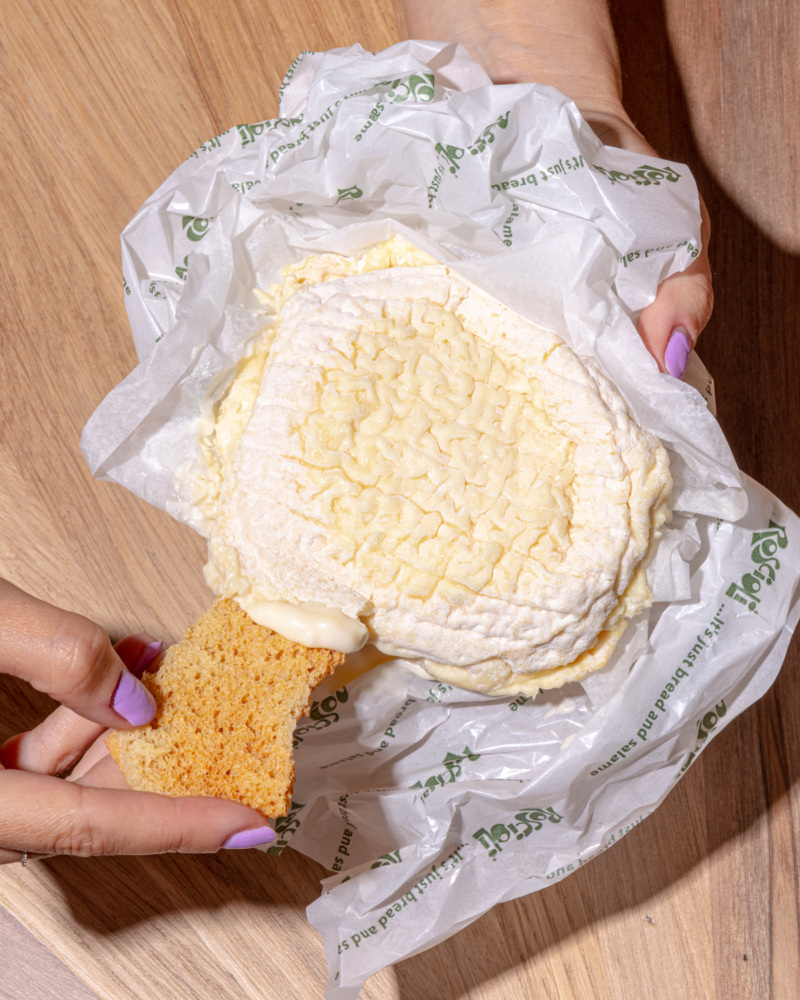

2. This project was the result of kismet.
So says Ariel Arce of how exactly Roscioli has come to New York. A glamorous force behind her own mini SoHo empire of hot spots like Tokyo Record Bar and Air’s Champagne Parlor, Arce also ran Niche Niche, a dinner party concept hosted by a rotating roster of guest wine professionals which Roscioli NYC is now replacing.
“During COVID, Niche Niche started partnering with chefs from all over the world,” Arce explains, “and these collabs turned into takeovers that could last a whole week.”
The Roscioli group did a pop-up here in December 2021, the week before Omicron hit full force “and it was completely amazing,” she says, “even in that difficult time for all of us in the industry. When it blew over, I felt it was important to open my mind as to what a restaurant could be.” So, Arce travelled the world for a year, picking a new place every month, finding herself back in Rome, a place she loves. “In the summer of 2022,” she recalls, “I was having dinner at Rimessa Roscioli with most of their team, going around the table talking about why exactly we are in this business. And it was Mattia Moliterni [Rimessa managing partner] who suddenly said, ‘Well, actually we want to open something in New York!’”
“From there it became a collaborative conversation, about what could we do together, and where and how,” Arce notes. In the end Niche Niche, with its energy and dinner party-like vibe, similar to Rimessa’s, made the most sense as Roscioli’s new New York home. And why not debut a salumeria as well in Niche Niche’s upstairs space? Plus there was Niche Niche’s “incredible” wine cellar to build up a wine program.
“So, like I say, it was all very kismet: how I got suddenly welcomed into the Roscioli family,” Arce repeats with a laugh. “We sent our New York team to Italy to work with the Salumeira and Rimessa teams, visiting producers, learning about their approach to ingredients.”
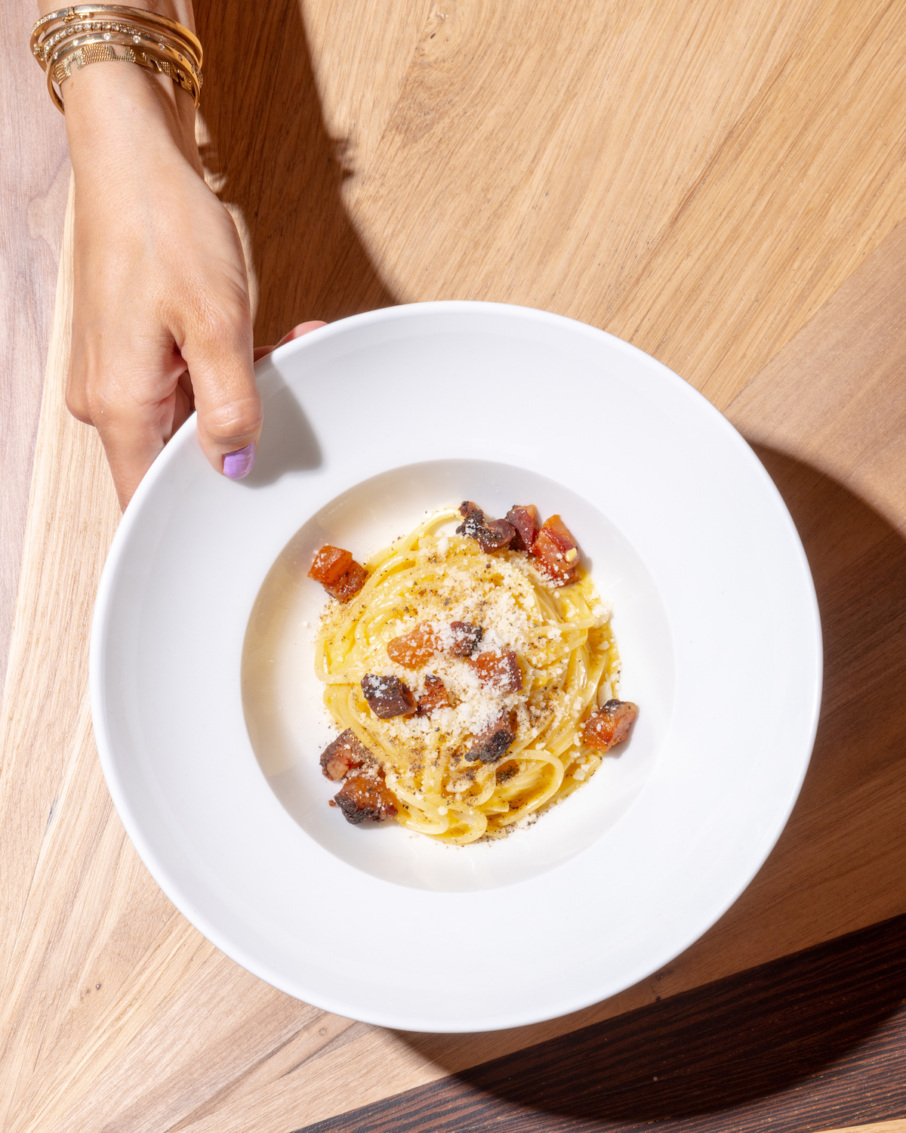
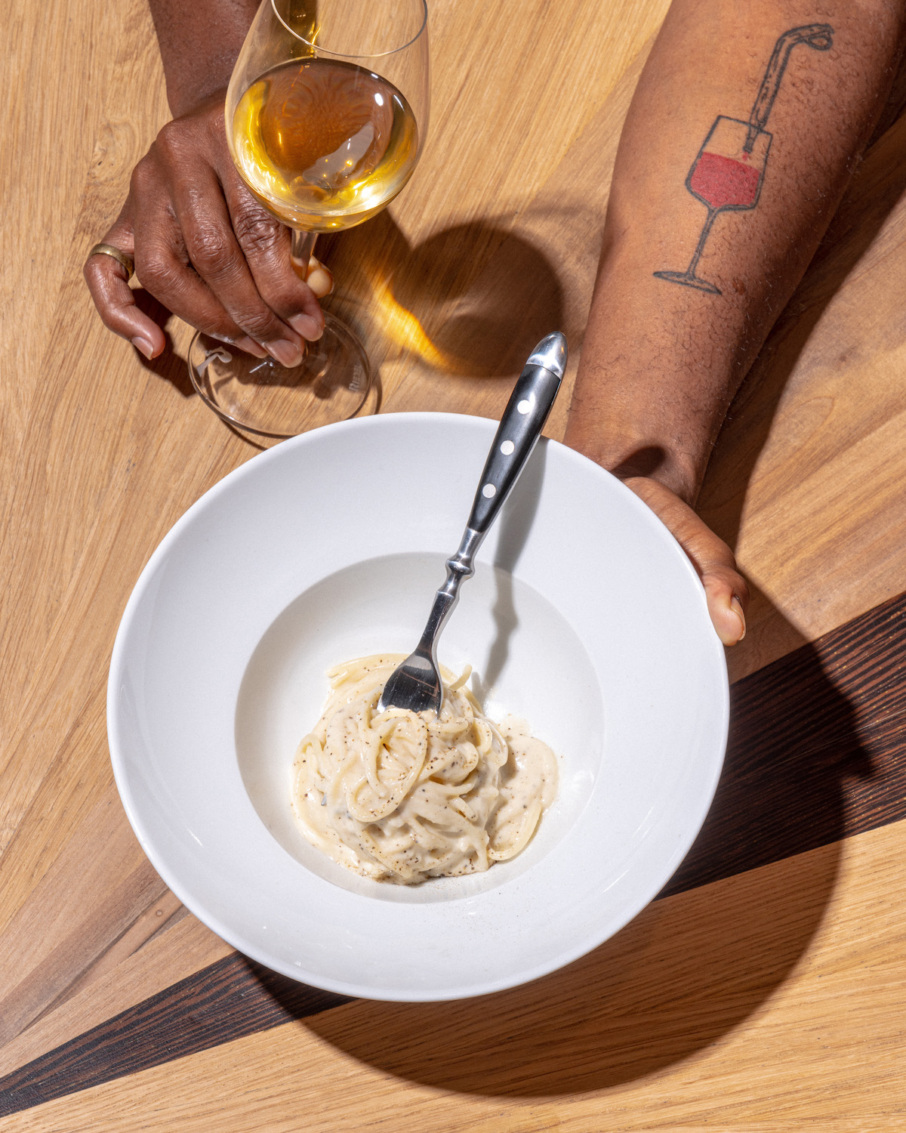
3. It’s an upstairs/downstairs setup.
At the moment, books are open for Roscioli’s tasting menu, served in a seductively lit 40-seat basement space designed with warm wood, circular booths, and black-and-white photos to evoke vintage supper club glamour and the family’s gastronomic legacy.
There are two nightly seatings, one at 6 p.m. and another at 8:30 p.m., and the tasting menu features four dishes each with a wine pairings for $105 per person, as well as “some extra treats from the kitchen,” promises Arce. There are also surprise pop-ins from visiting producers and artisans.
An adjacent private wine cellar room has a 16-person table for elevated tastings which can be paired with specialty products, plus a lounge for cocktails and further wine exploration.
“The downstairs experience is as much about food as it is about wine, which is something we did so well at Niche Niche,” Arce adds. In the kitchen, Italian Roscioli veteran Tommaso Fratini collaborates with Niche Niche’s Aaron Lirette on elegant minimalist masterpieces, be it the best panzanella you might have in your life, a perfect scallop dolloped with caviar, a Roman pasta course, and a secondo (main course) that could be a polpetto (meatball) so soft and plump and in such a vibrant tomato sauce, it might change how you think about meat in red sauce.
Slated to open in the end of summer, the upstairs space will have a no-reservation 40-seat à la carte wine bar and restaurant with crowd-pleasing menus of Romanissimi specials like supplì alla Romana (mozzarella-filled rice balls), primi like cacio e pepe and amatriciana pastas, a handful of main courses, and tasting plates of exalted-quality salumi, conservi, and cheeses.
Sharing the space will be an alimentari (a food shop) offering some 125 foodstuffs “shopped over and co-branded with Roscioli” says Arce, from dried pastas and pickles to vinegars, oils, and incredible honeys. Also upstairs will be a salumeria with cured meats and cheeses. It’s set-up familiar to anyone who’d dined at Roscioli Salumeria in Rome, surrounded by shelves of some of the world’s chicest ingredients.
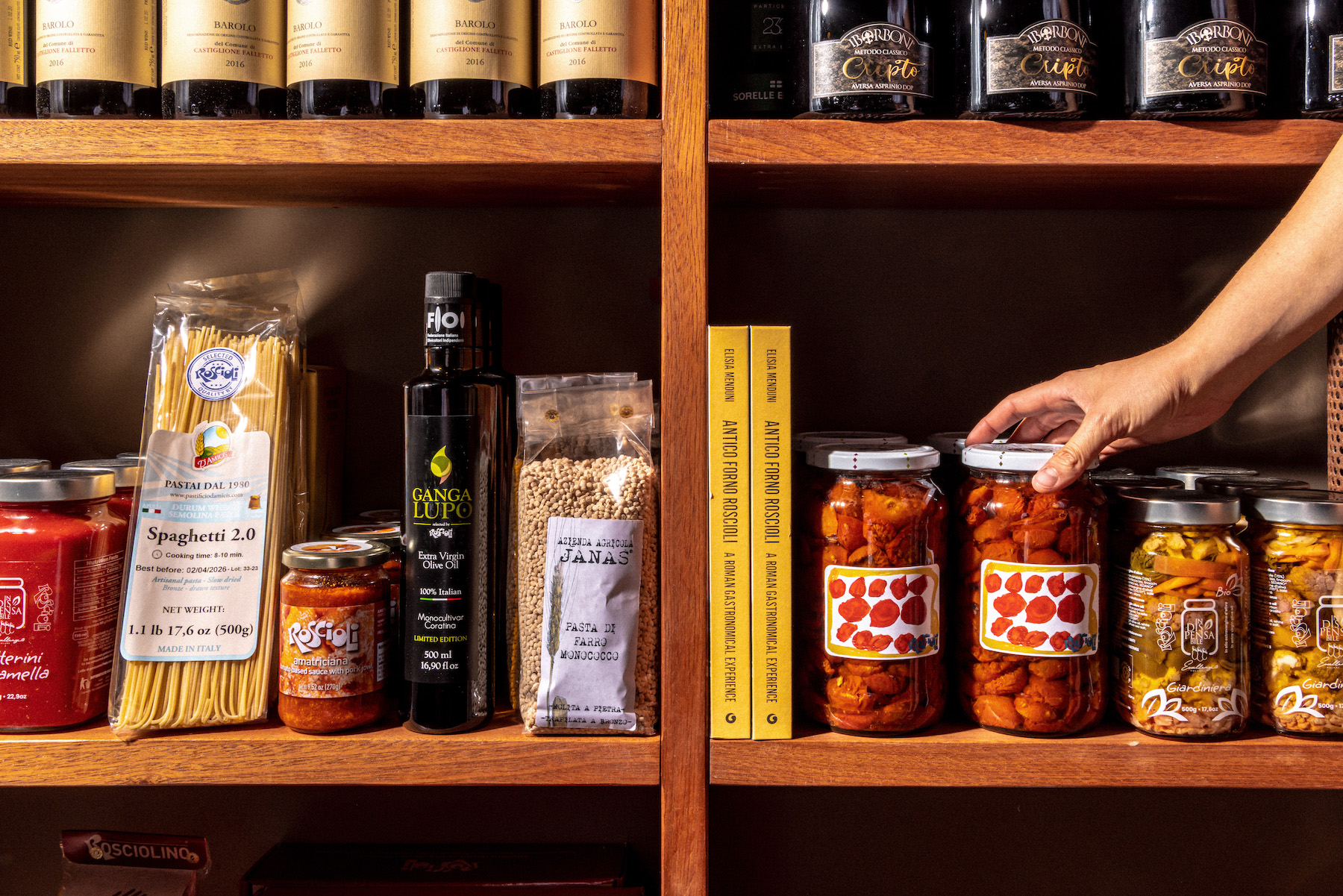
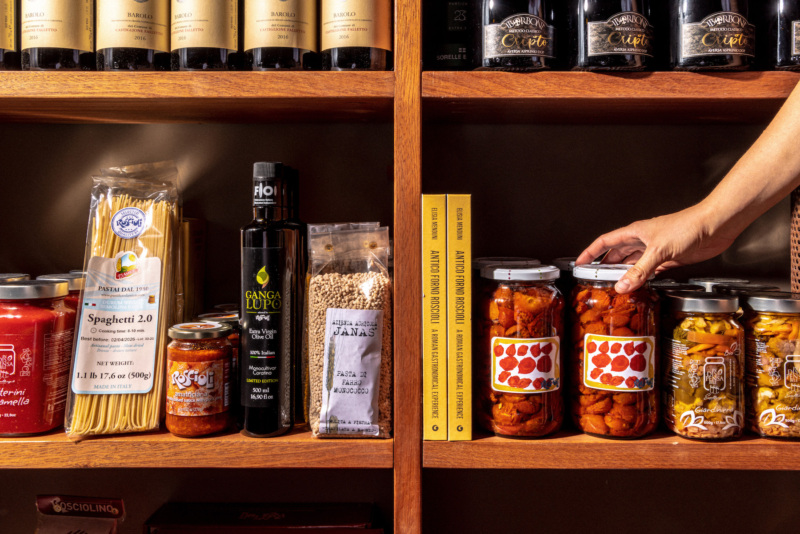
4. About those ingredients …
The Italian cult of Roscioli revolves around their astounding prodotti, often served au naturelle and also offered for sale, be it a limited-edition culatello from Emilia Romagna, cloud-like buffalo ricotta ferried straight from Campania, or the silkiest anchovies from Spain’s Cantabria region.
“In Italy we also collaborate with producers on private labels,” explains Alessandro Polizzi, an ex-chef-turned-self-described “products curator” who is here bridging the gap between Roscioli’s current relationships with producers in Italy and new purveyors from around the world and United States. “And these private labels are all about cultivating special artisans and building connections, so we know the people behind every bottle and and jar; the names of their kids, their family anecdotes.”
As part of the downstairs tasting menu, Polizzi might pour a taste of the ethereally light vividly grassy olive oil from Antonio Zangrilli in Lazio, made from an olive cultivar called itrana. “It’s so good all you need is some bread,” he insists. And he might pair a profoundly aged balsamic vinegar from an elite producer like Giusti in Modena with umami-rich chunks of Cantarelli’s 36-month-old Parmigiano Reggiano.
Polizzi is also excited to introduce New Yorkers to sott’oli (oil-preserved vegetables) such as lampascioni (grape hyacinth) and puntarelle (chicory shoots) “harvested just at the right moment, so sweet and delicious they can be plucked from the jar and served as part of the tasting menu.” He also promises a “very deep cheese list” of up to 40 selections, including his team’s finds from American dairies as well as imported Italian treasures like a limited-edition caciocavallo from Basilicata aged in clay, which will be broken at tables for customers.
“Sourcing cured pork salumi from Italy is always more challenging,” explains Polizzi, “but we’re working with special producers who are already importing their products, and we’re encouraging others to seek FDA approval. We’ll get there!” Rome, he notes, wasn’t built in a day.
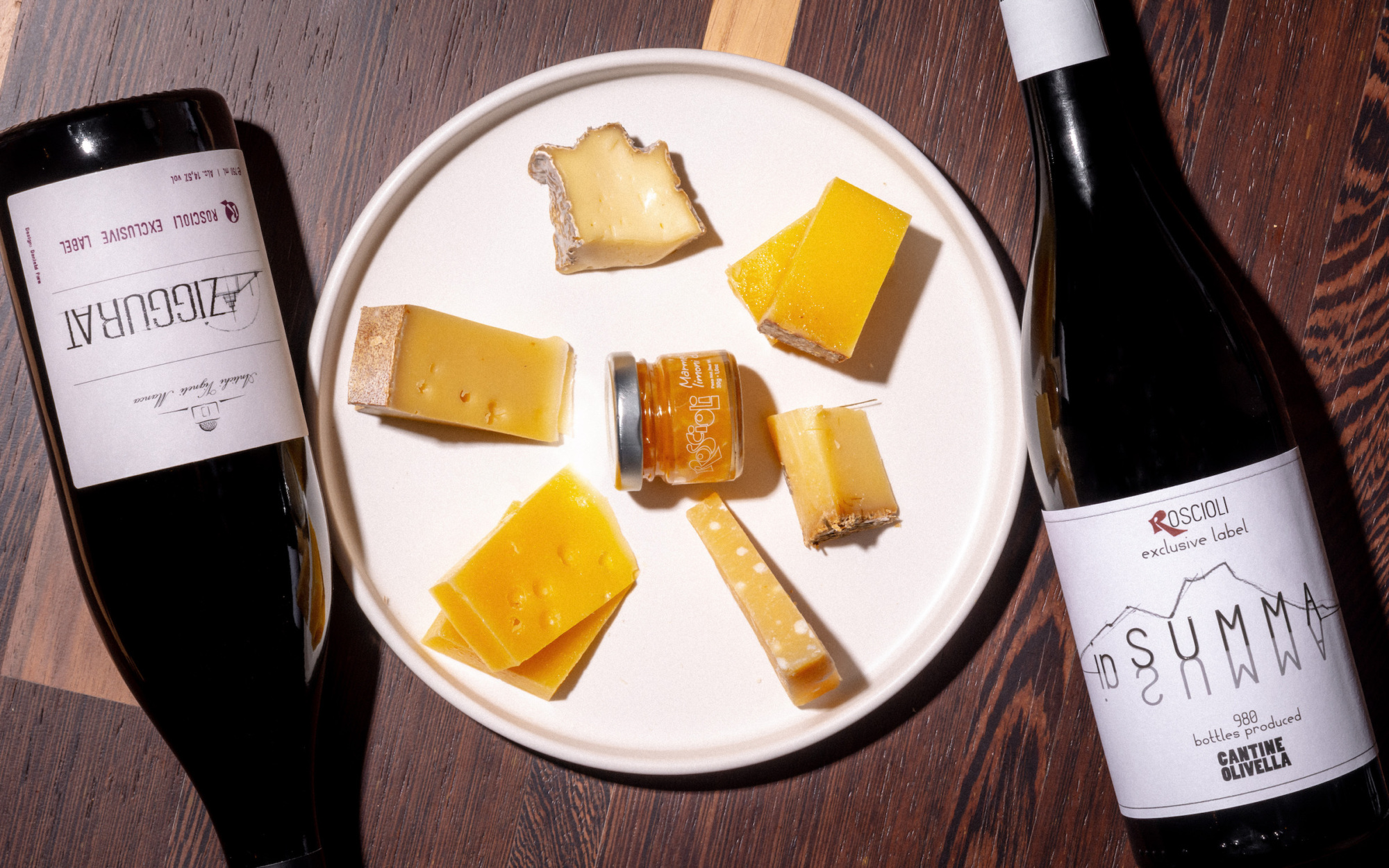
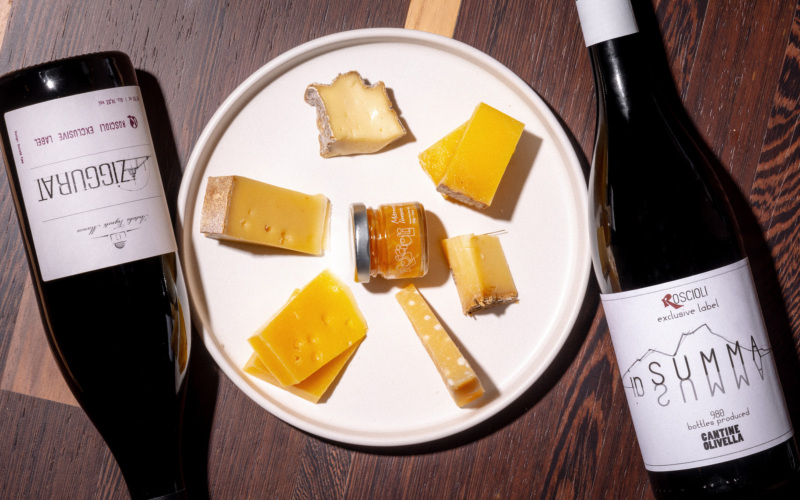
5. Perfection, Italian-style, means less is molto.
“What blew me away at Roscioli,” Arce recalls “was their unwavering, almost dogmatic dedication to quality, their absolute commitment to artisanal craft. The first time you go to their Salumeria and start tasting things, it’s completely amazing — but their brand of perfection might require a different palate than ours.” She goes on to explain: “As someone born and raised in New York, I’m proud of what we do here, but as Americans we’re often all about massive flavor. The Roscioli approach is the opposite.”
Simplicity and exceptional ingredients are what made the Roscioli family legendary, and the Roscioli experience is all about delicacy. “It’s an entirely new understanding of how to communicate through food and wine, but guests, including Americans, get this,” Arce notes.
Exhibit A: the burrata dish currently served on the tasting menu. If the oozy straciatella-filled cheese often inspires an excess of garnishes in American restaurant kitchens, here it receives a minimalist treatment just involving three different sott’olio tomatoes. “One is from Puglia” says Arce, “another one from Calabria, and another from Sicily, and all three are sheer perfection.”
And the burrata itself? “Bringing an Italian product from Puglia would require a painful carbon footprint and an equally painful price tag”, says Arce, “plus the journey would compromise the product,” she adds. The solution? A gorgeous burrata produced in Connecticut distributed by artisanal purveyor The Chef’s Collective. “The cheese is made twice a week, so that it comes through our doors super fresh,” says Arce. “I think it’s a product our Italian counterparts would be very proud of.”
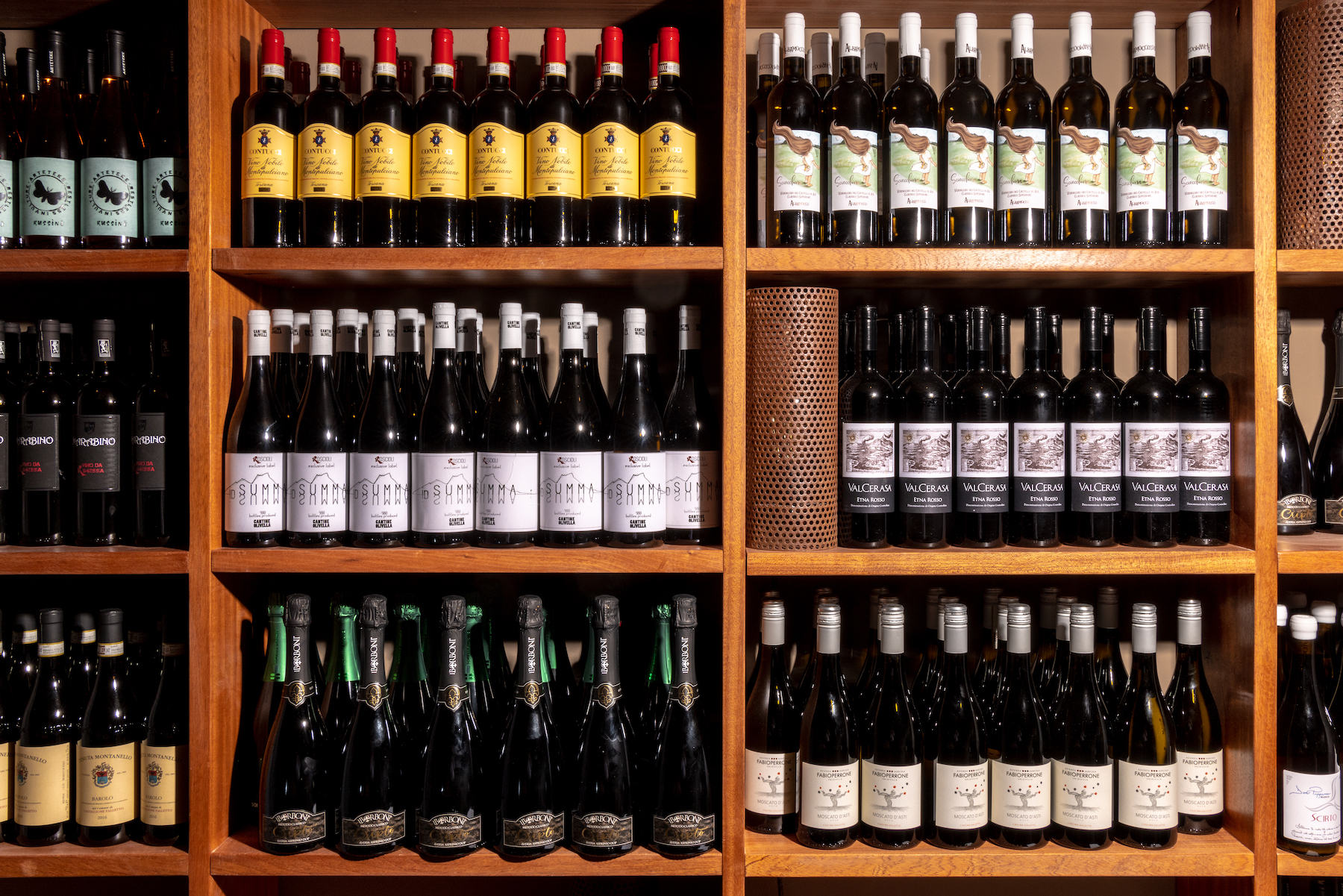
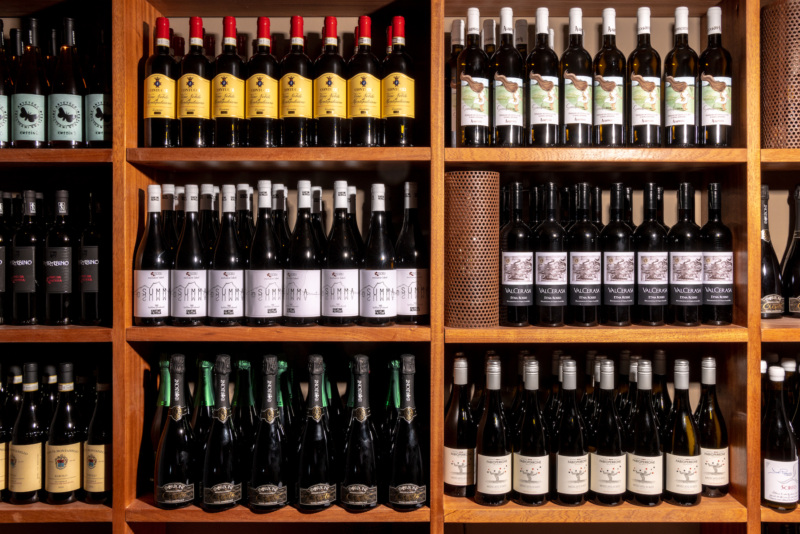
6. Wines play a starring role.
“My wine background was French, Champagne especially, so I was late to the party of Italy,” says Arce, “but now I want to stay past everyone’s bedtime!”
That said, Niche Niche already had a very deep list of some 400 labels, according to head sommelier and Niche Niche alum Kenneth Crumb, who adds that about 40% of the current list is Italian, including verticals of such cult producers as Valentini from Abruzzo and Piedmontese Barolo and Barbaresco king, Bruno Giacosa. The current wine list is a melding of that deep Niche Niche cellar — bottles selected by the world’s best wine professionals — and selections directly imported from producers that the Roscioli family has been working with intimately as part of the Roscioli Wine Club, including exclusive bottles from their collaborations with winemakers.
Currently poured with the tasting menus downstairs are terroir-driven Italian finds from Roscioli’s hand-picked collection. With pasta alla carbonara, Crumb might go for a Lazio red called Cesanese from producer Marco Falcone, who ferments his wines in Georgian amphorae (qvevri). And with the cheese course guests might discover an unusual Russine rosato (rose) made in Basilicata by a socially committed agricultural cooperative called Arteteke.
The Roscioli approach to wine is the same they embrace for ingredients: touring Italy in search of the most outstanding and committed producers with a sustainable mindset. And since the family already operates the Roscioli Wine Club which U.S. grape geeks can join, Crumb says, “Should you fall in love with a particular wine on our list, we can show you how to enroll and have it delivered straight to your home.”
“The Roscioli selection wines are natural leaning,” Arce adds. “Most contain no sulphites, but things aren’t dogmatic. Drinking the wines here is all about pleasure.”
In addition to vino, expect craft beers, collaborative amari, and a spritz program developed by Rome’s celebrated Bar Salotto 42. “There’ll be something unique and delicious for everyone,” promises Arce. And that also goes for the food.
Roscioli NYC is open from 6 to 11 p.m. Mondays through Thursdays, and from 6 p.m. to midnight on Fridays and Saturdays. Beginning July 23, it will also be open on Sundays from 6 to 11 p.m. Lunch service is also forthcoming. Reservations are accepted only for the downstairs tasting menu experience with two nightly seatings (6 and 8:30 p.m.); upstairs will be first come, first served.
Anya von Bremzen is a James Beard Award-winning book author and journalist based in Jackson Heights, N.Y. Her latest book, “National Dish,” was recently published. Follow her on Instagram. Follow Resy, too.
